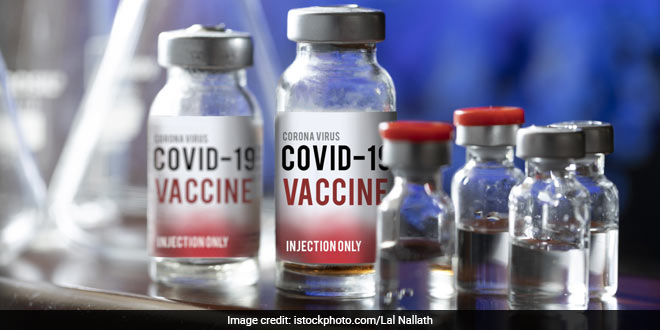Highlights
- There are ups and downs in clinical development: Soumya Swaminathan
- Oxford University and AstraZeneca are developing the COVID-19 vaccine
- WHO had flagged this vaccine as the most promising
ZURICH: AstraZeneca’s pause of an experimental vaccine for the coronavirus after the illness of a participant is a “wake-up call” but should not discourage researchers, the World Health Organization’s (WHO) chief scientist said on Thursday.
This is a wake-up call to recognise that there are ups and downs in clinical development and that we have to be prepared,” Soumya Swaminathan told a virtual briefing from Geneva. We do not have to be discouraged. These things happen.
Governments are desperate for a vaccine to help end the COVID-19 pandemic, which has caused more than 900,000 deaths and global economic turmoil, and the WHO had flagged AstraZeneca’s, being developed with Oxford University, as the most promising.
However, the drugmaker suspended late-stage trials this week after a participant in Britain suffered from neurological symptoms.
It’s a race against this virus, and it’s a race to save lives. It’s not a race between companies, and it’s not a race between countries, added WHO’s head of emergencies Mike Ryan.
Also Read: Convalescent Plasma Therapy Didn’t Help In Reducing COVID-19 Deaths: ICMR Study
More than 27.95 million people have been reported infected globally, according to a Reuters tally.
WHO epidemiologist Maria Van Kerkhove said a combination of factors is helping reduce death rates in Europe, including finding cases earlier and better clinical care.
We are in a better position to prevent the virus from infecting vulnerable populations, she said, cautioning, however, that the disease’s long-term effects were still not known.
WHO General Director Tedros Adhanom Ghebreyesus, who on Thursday upped his fundraising plea to $38 billion for the agency’s ACT Accelerator programme to fight COVID-19, declined to comment directly on reports that U.S. President Donald Trump had downplayed the virus’s dangers while criticizing the WHO’s response.
What worries me the most is what I have been saying all along: a lack of solidarity, Dr Tedros said. When we are divided, it is a good opportunity for the virus, he added.
(Except for the headline, this story has not been edited by NDTV staff and is published from a syndicated feed.)
NDTV – Dettol Banega Swasth India campaign is an extension of the five-year-old Banega Swachh India initiative helmed by Campaign Ambassador Amitabh Bachchan. It aims to spread awareness about critical health issues facing the country. In wake of the current COVID-19 pandemic, the need for WASH (Water, Sanitation and Hygiene) is reaffirmed as handwashing is one of the ways to prevent Coronavirus infection and other diseases. The campaign highlights the importance of nutrition and healthcare for women and children to prevent maternal and child mortality, fight malnutrition, stunting, wasting, anaemia and disease prevention through vaccines. Importance of programmes like Public Distribution System (PDS), Mid-day Meal Scheme, POSHAN Abhiyan and the role of Aganwadis and ASHA workers are also covered. Only a Swachh or clean India where toilets are used and open defecation free (ODF) status achieved as part of the Swachh Bharat Abhiyan launched by Prime Minister Narendra Modi in 2014, can eradicate diseases like diahorrea and become a Swasth or healthy India. The campaign will continue to cover issues like air pollution, waste management, plastic ban, manual scavenging and sanitation workers and menstrual hygiene.
[corona_data_new]





























